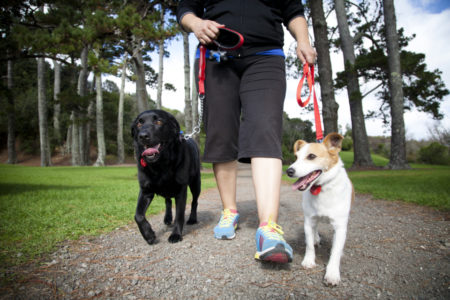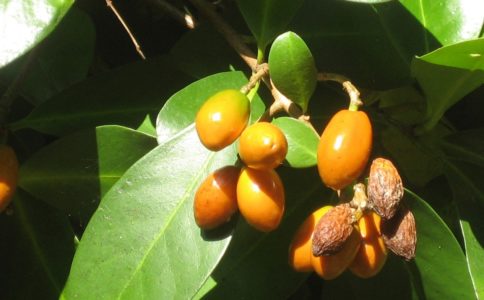
Dog owners are being warned about the risk of karaka tree berries.
Auckland Council has joined veterinarians in emphasising that the berries are highly toxic to dogs and consumption can be fatal.
Karaka trees are native to New Zealand and are abundant in public places throughout Auckland including parks and reserves, private properties and street plantings, said council.
The trees pose the greatest threat to dogs between summer and autumn, as the berries ripen and fall to the ground.
“The karaka tree has bright orange berries up to 4cm long, making it very distinctive. It can grow up to 15 metres and has thick dark leaves,” a council statement said.

“Residents should be aware that there may be karaka trees in their area and make use of alternative locations when walking dogs.
“Signs of karaka berry poisoning include confusion, weakness, vomiting, hind leg paralysis and convulsions.”
There can be a delay of 24-48 hours between berry consumption and symptoms.
“If you suspect your dog has ingested karaka berries, contact a vet immediately,” council said.
Information and advice about poisonous plants is available on the New Zealand National Poisons Centre website.
Dr Natalie Rogerson, from Sommerville Veterinary Centre in Howick underlined the importance of pet owners being vigilant and acting quickly.
“If an owner sees their pet chewing or eating a karaka berry, it is vital they take their dog straight to the vet.
The pet will not be showing any symptoms yet, but it is still imperative medical attention is sought,” she said.
“If the pet is brought to the vet within the first 1-2 hours of ingesting the berries, the veterinarian can induce vomiting. If successfully expelled from the system, generally no further treatment is required.”
Unfortunately, the symptoms can be numerous and varied, Dr Rogerson said.
“They can range from gastrointestinal – vomiting and diarrhoea to severe neurological signs – weakness, paralysis, seizures, even death.
“If there is any suspicion a dog has had access to karaka berries and is showing any of the above symptoms, a veterinary assessment is essential.
There is no antidote. Once symptoms develop, intensive supportive care is commenced.
“The prognosis is varied dependent on how much has been ingested, the size of the dog etc,” she said.
“This toxicity is life-threatening and the earlier treatment is commenced, the better the chance of a full recovery.”








